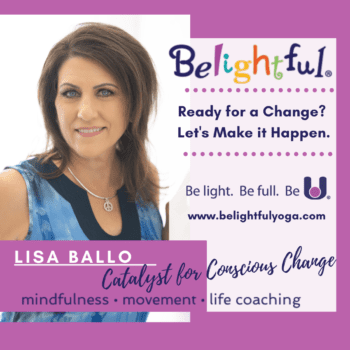If you often lash out with negative emotions when you’re stressed, hurt, or insulted you likely struggle with emotional reactivity.
You are far from alone. Especially these days. It so often feels like many of us are driven to overreact when in a stressful situation – whether it’s being cut off in traffic, believing we’ve been insulted, or even just having to stand in line.
In these moments, your perception is not reality. You fail to see the situation as it truly is. You’ve shut down our logic and let emotions and defenses take the wheel. We’ve all been there.
What’s With All of This Emotional Reactivity?
Negative emotions are processed much faster than logic. This is an evolutionary feature that allowed for anger, contempt, disgust, resentment, anxiety, etc. to keep early humans safe when their environment was threatened.

Today, however, we don’t face the same threats to our survival we once did. Yet, we still have all of these feelings right at the surface. So the moment we feel threatened, many of us react with negative emotions rather than pause and consider the reality of the situation. It happens every time you post a negative or nasty response on social media.
This is problematic. Because when in this state of emotional reactivity, you’re prone to confirmation bias. You will easily ignore or overlook any evidence that falls contradictory to your reaction. Because you think something, it becomes reality.
Assumptions and judgments are just that. They are not truths. Especially when made in the heat of emotional reactivity. And if you’re not careful, they can become self-fulfilling prophecies.
It Helps to Know Your Triggers
Oh, sure. Okay. That’s easy. NOT.
Uncovering your underlying triggers takes some serious self-work through modalities like therapy, life coaching, and mindfulness practices such as yoga and meditation. Not a lot of folks want to deal with the arduousness or painful discoveries of such work though.
Which is too bad. Because when you do make the effort to discover your triggers, you can get a handle on emotional reactivity. You’ll understand your tendency to misread people or situations. And rather than spewing out negativity that strains your whole being, you’ll experience less emotional disturbance and have more clarity in your life.
Without taking a deep dive into self-study, you can begin by noticing when an interaction is causing you to react negatively and RESPOND instead. Ask yourself what the person is reacting to and be curious about how they’re perceiving you in the moment. Are you acting like the kind of person you want to be?
And Then Be Willing to Listen
This is a big one.
You have to be willing to slow down and actively listen to assuage emotional reactivity. With active listening, the objective is to HEAR what the other person is saying. Then pause and try to understand it without letting your own biases, beliefs, or emotions hijack you. This is key to warding off emotional reactivity.

Active listening is not a negating of your own feelings and beliefs though. It’s not pushing against them or repressing them. After all, what we resist persists. Instead, it’s noticing when emotions arise and then making a mental note of them rather than exploding.
Once you have practiced active listening, ask questions so that you have a solid comprehension of the other person’s position. Once you feel comfortable with that, then you can explore your thoughts, feelings, and emotions around the situation. Then as succinctly and calmly as possible, share them.
It’s important to understand that this isn’t as simple as it sounds. There will be occasions when you’re dealing with some very intense emotions that may not make sense. This is where it’s helpful to have a therapist or life coach who can help you understand their source and to properly articulate them.
Do You Need Help Managing Emotional Reactivity?
The vast majority of us have experienced emotional reactivity. And it’s more challenging in some situations than others to put aside your reaction in exchange for listening so you can adequately RESPOND.
As we mentioned above, acquiring a life coach or taking part in mindfulness practices can help you get started on lessening emotional reactivity.
If these are of interest to you, then contact us today. We offer both mobile and on-site life coaching and yoga to help you live a more peaceful and serene life.



